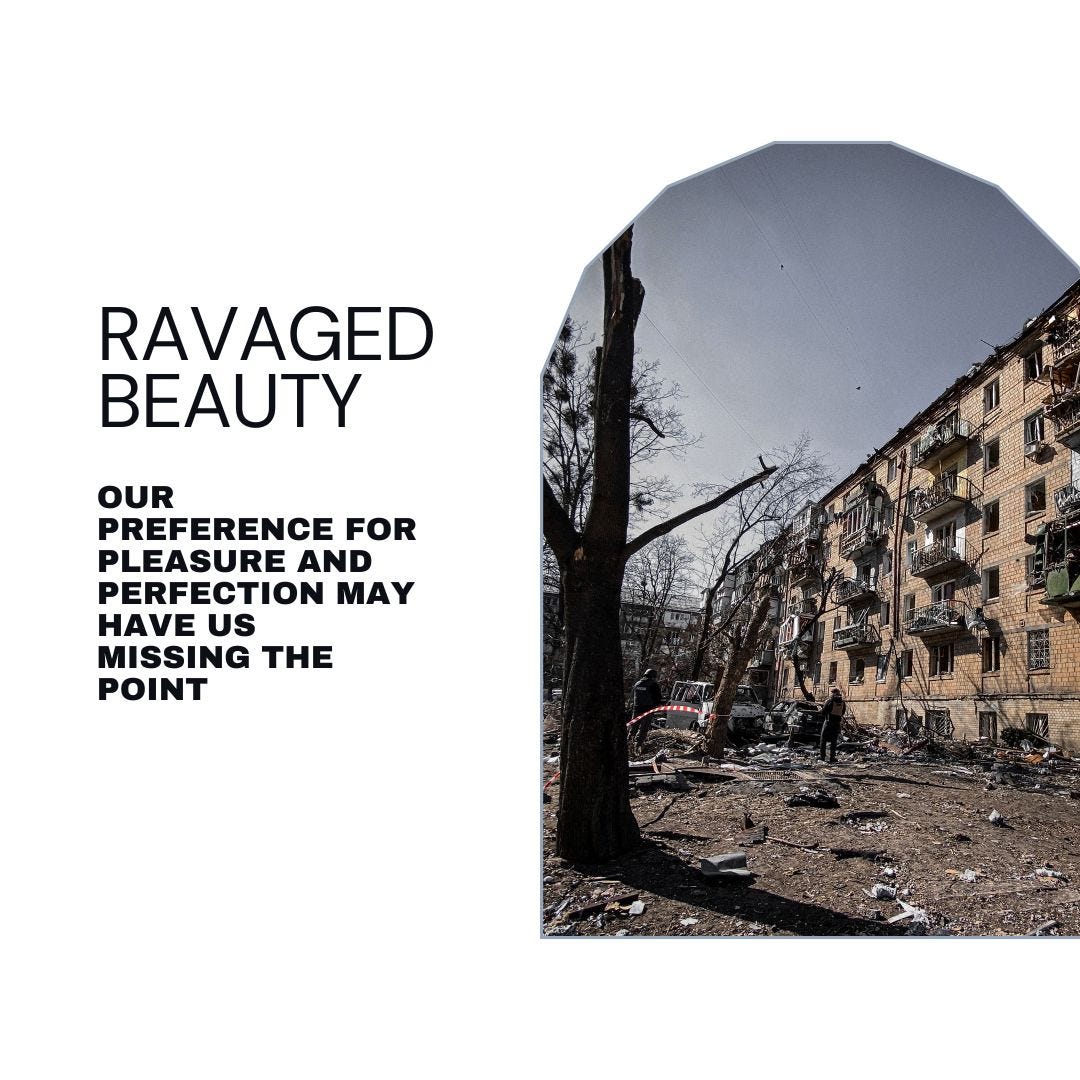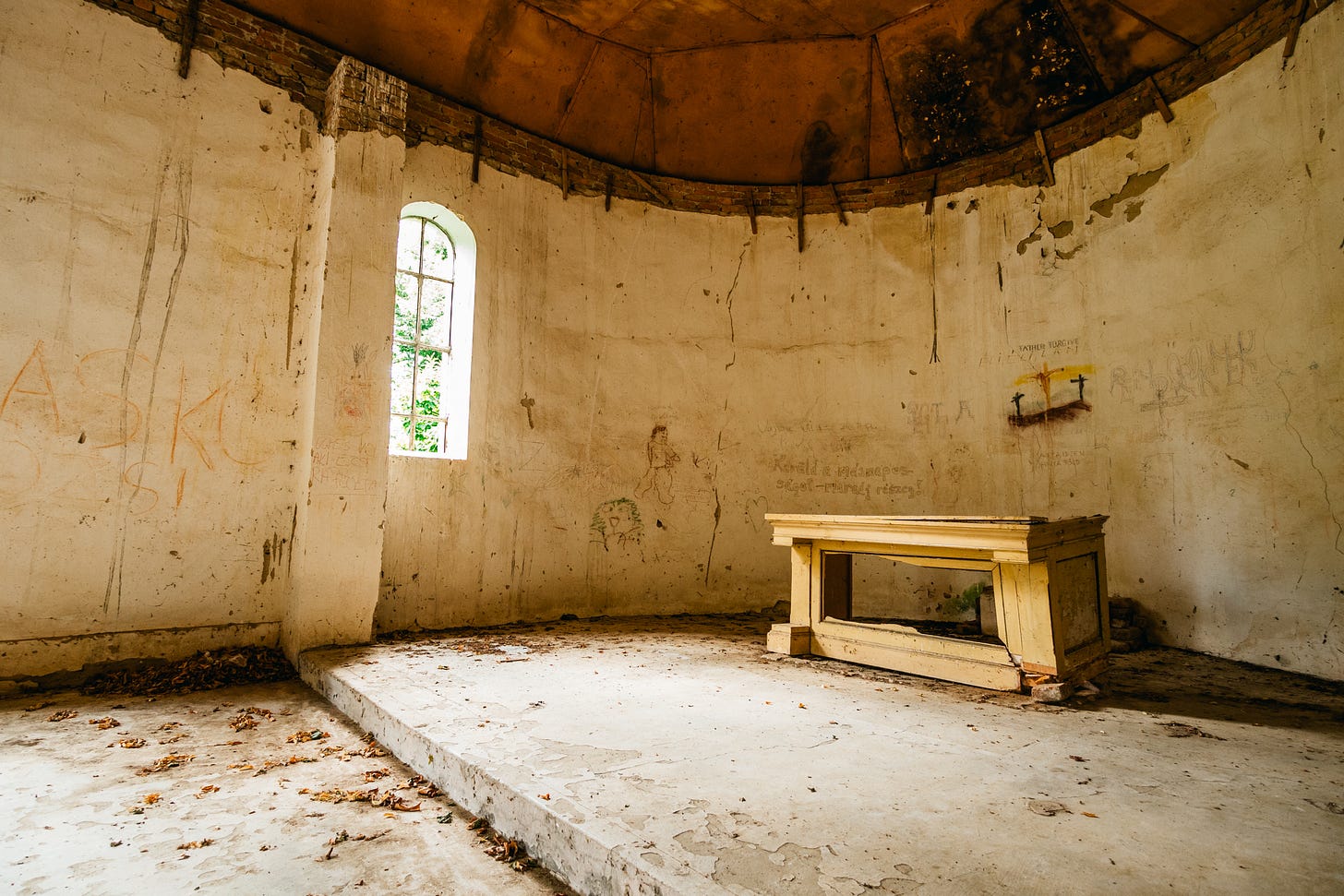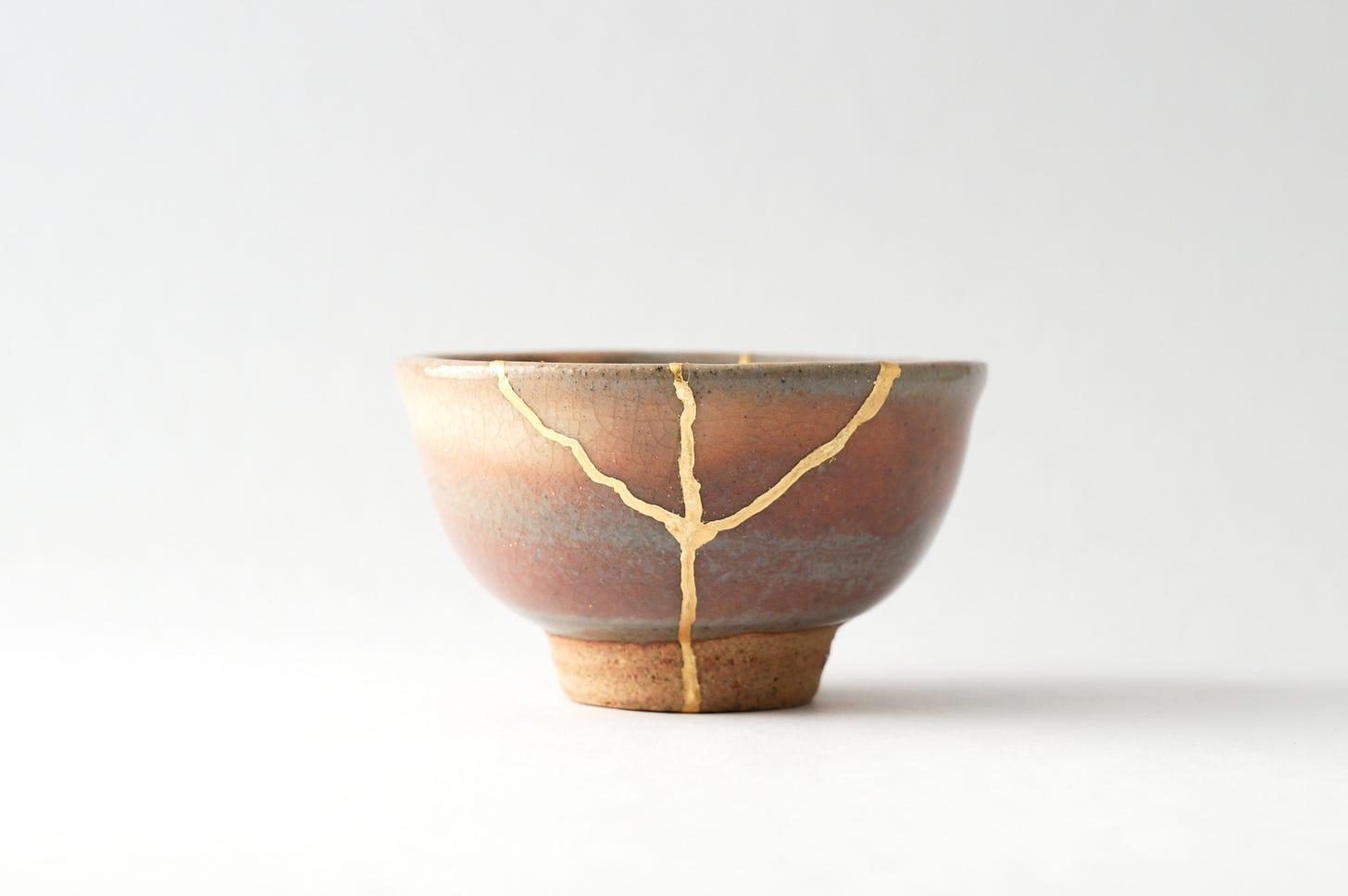The phone rings again and the words “County Jail” flash across the glowing screen. This is the third call from him this week, the third opportunity I’ve had to answer and hear his voice after so long without it in my ears, and the third time I’ve chosen not to answer, thereby breaking my own heart. I know it’s absurd, but I pray that he feels my love even as I reject him.
I sent him a few books this week and added money to his inmate account a few weeks before. I tell myself I will answer the next time he calls, that I’ll take the risk again. And maybe I will. But it’s also just as likely that I won’t answer the next time, or maybe ever again. He is my beloved, I hold him in my heart like a prized possession tucked away from the world; but he has hurt me in my depths over such a long span of time that I no longer feel sturdy enough to withstand the havoc even one conversation with him usually brings.
When I think of him as he was in childhood, I ache – green, curious eyes, a golden head of ringlets, gentle and smart. He was a beautiful boy. When I remember us together, I smile – bantering and laughing, he always teasing and me rolling my eyes. There was once a we and we were beautiful too.
It’s devastating to behold a beauty ravaged by the worst this world has to offer. As I’ve aged, I’ve become utterly unnerved by the realization that all beauty is eventually ravaged. Nothing is spared. What do we do with this reality? How can we experience hope or joy or peace when we know that the best, most lovely parts of this life and this world will not escape the ravages of existence?
Aesthetic hedonism is the philosophical view that aesthetic value is valuable because things having it give pleasure when experienced.
If the valuable attribute of beauty is that it delights us then, conversely, what does not delight us is not beautiful. We don’t need a Ph. D in philosophy to know how this works. If something invokes feelings of disgust, anger, or grief we usually do not find it beautiful. We often make judgments on what is beautiful and not beautiful in an instant, before we even have time to bring our intellect into the process, allowing what philosophers call our sensa to guide us, those automatic sensations and perceptions which simply come to us outside of our thoughts. Plotinus summed it up best when he said,
“This is the spirit that Beauty must ever induce: wonderment and a delicious trouble, longing and love and a trembling that is all delight.”
The classical conception of beauty is that it’s found in an arrangement of parts into a coherent whole, according to proportion, harmony, and symmetry. Thomas Aquinas once famously said that something impaired, or imperfect, is inherently ugly. (Tell us how you really feel, Tommy!) Some philosophers have argued that things are only beautiful when they are fitted for their purpose, or useful. Most of us are conditioned to look for beauty under precisely these conditions and make our judgments accordingly. And, according to Professor of Aesthetics at Harvard, Elaine Scarry, this is why we often err when it comes to beauty.
Making errors in beauty can take two forms, according to Scarry: 1.) Realizing that something you once regarded as beautiful is no longer beautiful to you. This is an error of ‘perceptual generosity.’ 2.) Realizing that something you once regarded as un-beautiful is suddenly very beautiful. This is an error of failed generosity.
At this stage of my life, I am wondering more than ever about the mistakes I’ve made in my judgments on what is beautiful and what is not. Where has my perceptual generosity failed?
As I’m writing this piece, innocents are dying in Israel and Palestine. Two days ago, the 565th mass shooting this year took place in America. Read that sentence again.
The family that I tried to create which would shelter us all from the darkness of the world turned out to be a normal human family which generated pain of its own. I bear thick scars from suffering in my body. Speaking of my body, the deepening of wrinkles and sagging of skin reminds me daily that my cells are breaking down in preparation for my death.
This is a world of ravaged beauty. A place where someone I love more than anything is locked behind bars, part of a system of mass incarceration which is intended to be justice. And I’m too wounded to accept his phone calls.
There is nothing just about this.
Like many before me, I’ve written and reflected on the beauty of kintsugi, the Japanese art of repairing broken things by mending them with gold. I love the idea that what has been broken can be redeemed and made even more beautiful because of its brokenness.
Now, though, I feel an invitation to look at something else, particularly those things that we never see repaired in this life, those things that stay ravaged no matter what we do. Those disproportionate, unharmonious, impaired things which bring us the exact opposite of pleasure.
What am I not seeing? What errors in beauty am I making? I whisper this prayer, because “God so loved the world that he gave his only Son…” (John 3:16). God must see the beauty in this world to love it with this kind of ultimate passion and purpose.
I recall that Christ, resurrected from the dead, carries the scars of love on his body too. He came to us and offered Himself in death. The pinnacles of injustice and beauty crashed into one another with such cataclysmic force that they killed Him.
And He chooses to wear the evidence of this on His body, ravaged beauty as a signpost for Love.
Perhaps the ancient Greek lyrical poet Sappho, who influenced the likes of Socrates and Plato, was right when she said,
“Some say thronging cavalry, some say foot soldiers, others call a fleet the most beautiful sights the dark world offers, but I say it’s whatever you love best.”
Christ looks on this ravaged world with love, and so makes it beautiful. I look upon Christ’s ravaged body with love, and His scars become the most beautiful thing I’ve ever seen. Perhaps the invitation now is to re-imagine beauty beyond the pleasure it may bring me, to expand my perceptual generosity so that it includes all that is real. The philosopher Emmauel Kant said that imagination is an ‘indispensable function’ for our knowledge of the world around us. I think he’s right. Without developing our theological imaginations, we have no real hope of seeing God’s good work amid all the ravaged beauty around us.
We are looking for the perfect and, if not the perfect then the kintsugi-beauty that brings us maximum pleasure. But God is here, in the ugly, the still-broken, and the ravaged.
Elaine Scarry describes the moment when “something you did not hold to be beautiful suddenly turns up in your arms arrayed in full beauty,” as a surprising moment which demands a response. And the only appropriate response is to stand in awe of a layer of reality that has been revealed to our once-blind eyes. We wanted perfection, pleasure, and obvious harmony. But what we got was something more complex, gritty, painful and…real. Jewish theologian Abraham Joshua Heschel said,
“Replete is the world with spiritual radiance, replete with sublime and marvelous secrets. But a small hand held against the eye hides it all.”
When we take our small hands and cover our eyes at the sight of ravaged beauty, what spiritual radiance are we missing? What sublime and marvelous secrets stay hidden from us when we insist on perfection and pleasure as the hallmarks of beauty? What parts of ourselves never come into being because they weren’t given the opportunity to behold the sacred beauty of a ruined thing that has not been ‘put back together’?
If my beloved one calls again today, I may answer this time. I may give love a chance to make kintsugi beauty out of the shattered remains of our relationship. And, then again, my soul may not be ready. Perhaps his soul isn’t ready either. The beauty of us has been ravaged and the invitation may be to allow my hands to fall from my eyes and behold the presence and activity of God within this ruined landscape.








This is beautiful and deeply intense on a level I can not describe in natural terms and I find myself very connected to this feeling. I pray for him everyday. As I grow older I am overcome with urgency to pray for so many of my beloved. He sits at the very top of my list. God has a way of reaching down into the hearts of those who find their lives shattered and broken. He did this for me. I keep on holding on to faith at the forefront, for I know of nothing else that I can do. I share that same pain within my depth as well WITH you. I believe that God’s grace and mercy has been and still is fervently at work in our beloved right at this moment and he will rise from the ashes one day. Maybe, in this life or the next but I am convinced that he will be more beautiful for having been broken. No one is spared of brokenness if we are responsible for the breaking or even if some else may hold that responsibility. Ravaged beauty is also one of the inevitables of life. When all is said and done and the Lord gives us our life review we will see how the beauty and the ugly were God’s golden threads and silver cords that only HE so gracefully and intricately wove together to design this beautiful tapestry of LIFE.
I love you Amber 🩷